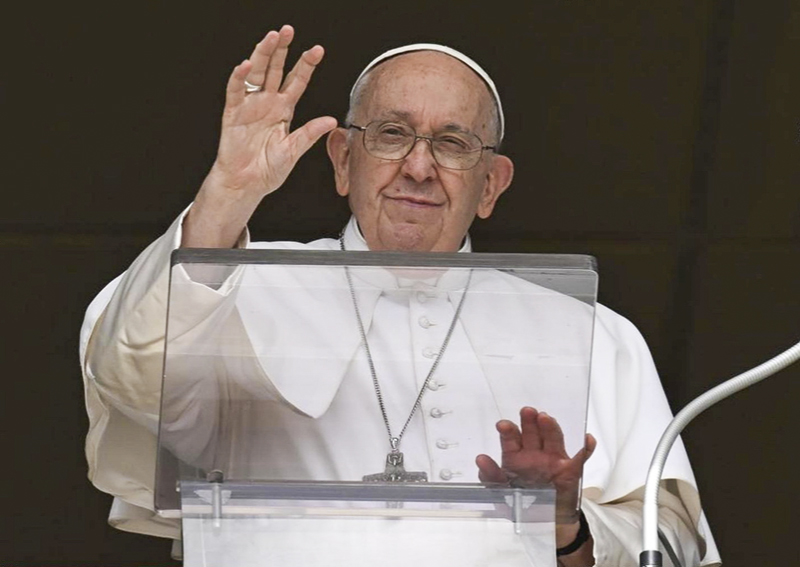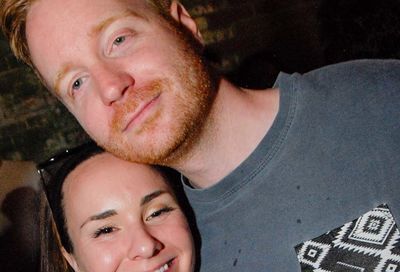Seeing the Light
The new pope can open his eyes or continue the lighter side of social justice
In January 1959, only three months into his pontificate, John XXIII called for the convening of Vatican II, which actually opened in October of 1962 and was attended by all of the world’s Roman Catholic bishops, as well as representatives from the major Orthodox and Protestant churches. Most observers thought that John XXIII would merely do reform of canon law and some liturgical and spiritual renewal. But the unexpected happen when John XXIII called for an aggiornamento – an opening of the windows of the Catholic Church to the modern world.
Since the closing of Vatican II in 1965 the Catholic Church made radical reforms in terms of liturgy in vernacular languages, proclamation of religious freedom, development of ministries for the laity, and greater emphasis on the social doctrine of the church. However, in 1968 John XXIII’s successor Paul VI issued the encyclical Humanae Vitae (”On Human Life”), which condemned the use of artificial contraception for birth control. He resurrected natural law moral theology to justify the argument that the use of artificial means for family planning was contrary to the natural law. Natural law logic became foundational for theological development under John Paul II (papacy from 1978 to 2005) and of the work of Cardinal Joseph Ratzinger as head of the Congregation for the Doctrine of the Faith, most particularly Ratzinger’s articulation of homosexuality as an ”intrinsic moral disorder.”
This history is critical to an understanding of the election of Argentine Cardinal Jorge Mario Bergoglio as Pope Francis. He inherits both the legacy of Vatican II reforms as well that of John Paul II and Benedict XVI’s natural law revival. I see these as the dynamics between a pastoral approach and a legalistic approach to church development. Under Benedict XVI the Vatican has maintained a highly legalistic approach to the LGBT community, particularly fighting every human-rights effort to include sexual orientation and gender expression within human-rights laws around the world.
News reports of Pope Francis’s first days in office have emphasized his humility, ability to speak from his own experience, and his work with the poor and vulnerable, particularly the picture of his washing the feet of AIDS patients. Yet in the 1970s Francis was against liberation theology emphasizing social structural and economic change and preferred a focus on charity and presence – good things, but not getting to the root of poverty and oppression – a kind of ”liberation light.” As provincial of the Jesuits (1973-1979) during the most critical years of Argentina’s military dictatorship, he was not a prophetic voice for social justice, whereas in those same years the Jesuits of Chile were outspoken critics of the Pinochet military dictatorship. He was ”prophetic light” in that he may have done personal deeds to help out people being persecuted, but he never spoke up against the dictatorship. He protected the institutional interests of the Jesuits over and against freedom and justice for all Argentines.
More recently Pope Francis has been an outspoken critic of LGBT rights in Argentina. He has followed Vatican orders to fight all LGBT-rights legislation, especially against marriage equality and adoption rights. Unless he has the courage to tackle the natural law premises that have formulated ”intrinsic moral disorder” theology, I see no change in Vatican policies. Yet he might employ his ”light” approach emphasizing charity and good deeds and tone down the legalistic and strident campaign against LGBT rights around the world. Will he be burdened like Paul VI who had to weigh scientific evidence against natural law tradition regarding birth control? My hope is that Pope Francis will ”open the windows” and see LGBT people as really real and that their sexual orientation is constitutive of their personhood and not intrinsically disordered. I am willing to wait and see – but not too long. Otherwise we may suffocate!
Joseph Palacios, Ph.D., is an adjunct professor of Latin American studies at Georgetown University. Contact him at dr.josephpalacios@gmail.com.
Support Metro Weekly’s Journalism
These are challenging times for news organizations. And yet it’s crucial we stay active and provide vital resources and information to both our local readers and the world. So won’t you please take a moment and consider supporting Metro Weekly with a membership? For as little as $5 a month, you can help ensure Metro Weekly magazine and MetroWeekly.com remain free, viable resources as we provide the best, most diverse, culturally-resonant LGBTQ coverage in both the D.C. region and around the world. Memberships come with exclusive perks and discounts, your own personal digital delivery of each week’s magazine (and an archive), access to our Member's Lounge when it launches this fall, and exclusive members-only items like Metro Weekly Membership Mugs and Tote Bags! Check out all our membership levels here and please join us today!






















